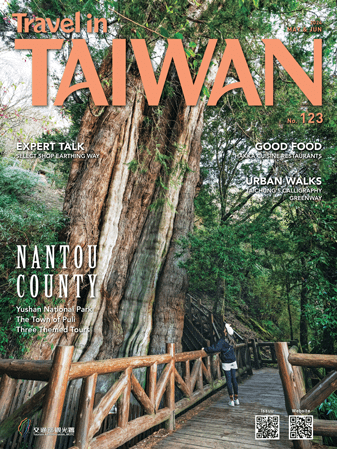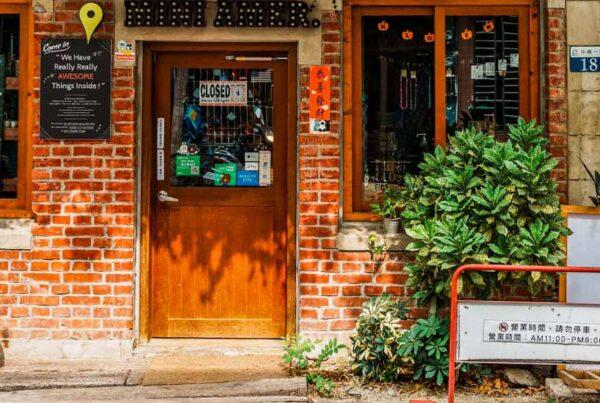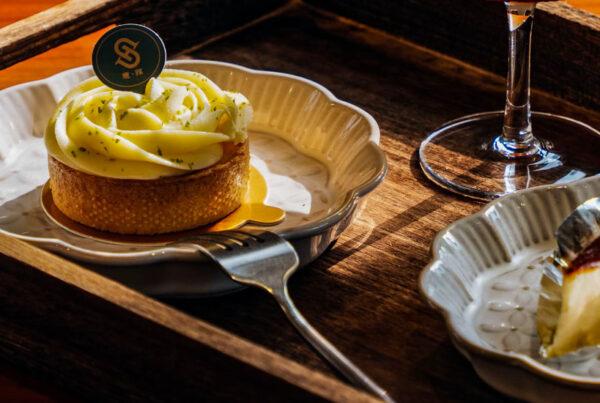In this article Travel in Taiwan heads to Yanzitao Pottery Coffee B&B in the township of Nanzhuang, Miaoli County, to enjoy a DIY pottery experience and get a taste of the region’s “take-it-slow” way of life.
There are numerous ways to reach Nanzhuang Township from Taipei. On this occasion we’ve opted for a bus ride (see end of article for transport info). After a hop-off, hop-on transfer at the nondescript bus station in Toufen, a town just south of Miaoli County’s border with Hsinchu City, we find ourselves on a rather fast local bus ride across the Miaoli countryside.
The intoxicatingly quaint rural scenes and hamlets seem to have little influence on the driver’s sense of urgency. As we zip through Sanwan Township and enter Nanzhuang Township, the roads become more winding and the views whizzing past lovelier.

Miaoli is known for its hardworking yet laid-back folk, the majority of whom, especially in the countryside, are Hakka, with pockets of Atayal and Saisiyat indigenous settlements found in the hilly and mountainous parts of the county as well. Days start early in Miaoli, but afternoons often give way to prolonged naps or leisurely pursuits.
Miaoli residents rightfully boast about their excellent weather. In the winter months, if it’s raining in Taipei, there’s a high chance of blue skies in Miaoli. The favorable weather also allows farmers to grow the county’s signature crops, which include strawberries, pears, persimmons, Chinese radishes, and tea. Local food experts in Miaoli will tell you that the leafy greens here are noticeably crunchier and more flavorful than those grown elsewhere in Taiwan.
Nanzhuang perfectly encapsulates Miaoli’s rural charm. The township’s characteristic serenity is no secret. You will pass many houses that serve as B&Bs (called a minsu or homestay in Taiwan), the preferred choice of holidaymakers who come from cities around the island in search of solitude.
As our bus approaches Nanzhuang town, we pass one of the entrances to the Lion’s Head Mountain Scenic Area, which is part of the Tri-Mountain National Scenic Area (www.trimt-nsa.gov.tw). Here trails lead hikers past many old temples built on, and into, the mountainside. This section of the national scenic area straddles the border between Miaoli County and Hsinchu County. The main entrance area, on the Miaoli side, is home to the densest and most popular collection of religious edifices, including Quanhua Temple, a Daoist temple dedicated to the Jade Emperor that was built in 1897.
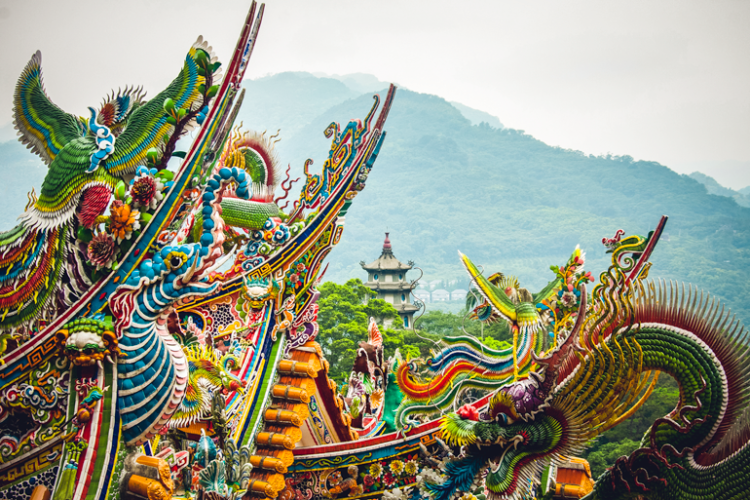
After arrival in Nanzhuang town, we go on a short stroll along Nanzhuang Old Street and Sweet Osmanthus Alley, the latter a narrow lane that attracts many tourists on weekends, eager to sample its regional Hakka specialties, in particular teas, shaved ice, and other delicacies flavored with the alley’s namesake flower.
Also read:
Taking It Easy in NANZHUANG, Miaoli County
Yanzitao Pottery Coffee B&B
Our destination for the day, the Yanzitao Pottery Coffee B&B, is about 3.5km southwest of Nanzhuang town. As there is infrequent bus service on County Road 124 (see box at end of article), taking a taxi from the town is recommended.
We are lucky that the owner of Yanzitao has agreed to pick us up, however, and after a short wait in the town a small olive-colored car pulls up. We are greeted by Momo, the owner’s daughter, who goes by this Japanese name after having majored in Japanese and spending a year working in coffee shops in Japan.
Momo’s working holiday was partially motivated by her desire to contribute to the realization of her parents’ business goal: establishing a pottery-focused guesthouse in their retirement home in Nanzhuang Township.
Momo describes her role in the project as she drives.
“Coffee is an important part of the leisure industry here,” she states. “It is a conductor of relaxation.”
On that note, we arrive at Yanzitao Pottery Coffee B&B, a modern three-story countryside home with a commanding view of the surrounding hills.

A pair of large white ducks welcomes us with quacks. The ducks, Momo shares, are known to fly over the yard fence and down the hill and then waddle their way back up the driveway, for some reason unable or unwilling to fly in an upward direction.

We are greeted warmly by Chang Yan-feng, Momo’s mother, and are invited to enter her home. Chang and her husband Chan Hsun-wen’s artwork fills the living room – shelf upon shelf of vases, jars, statues, and ornamental pieces. Each potter has a distinctive style. Chang’s pieces are decorative, and revolve around figures and faces. Her familiarity with form goes back to her former profession as a hairstylist. Chan, by contrast, leans towards functional ware like teapots and lamps, with his favorite motif being the swallow. Yan, the Mandarin word for swallow, is part of both his wife’s given name and of their guesthouse.


While pottery is most often practiced by men in Taiwan, it was Chang who initiated the couple’s shared interest in the craft, and it is her work that has received the most praise. Chang recounts a childhood of poverty, working hard from a young age. After she married Chan she would take their kids to free courses at a cultural center in Miaoli, and began to develop an appreciation for art. After her kids had grown older she took courses herself, trying everything from calligraphy to painting, but it was pottery that made the deepest impression on her.
“Pottery was always in my nature; I just had to discover it,” Chang recollects. “Pottery was my calling.”
As her obsession with pottery grew, her husband followed suit. He was constantly driving her around as she sought to learn from different pottery masters, and would sit beside her in class. According to Chang, her husband mostly does the “manly” work, like carrying the heavy sacks of clay, so that she can focus on her art. “He has been as supportive as a husband could be, physically, emotionally, and financially.”
While we chat, we sip on roselle tea and water infused with Mt. Lemmon Marigold, giving it a taste and aroma virtually identical to passion fruit. This is one of the numerous flowers and herbs grown and sold at Yanzitao.
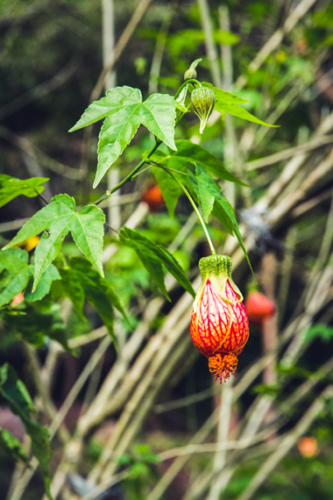
Next we go outside to tour the garden. Momo’s coffee shrubs are in their third year, and just beginning to produce fruit suitable for harvesting and brewing. We learn that Arabica typica coffee grown at lower altitudes such as here in Nanzhuang has a flowery, jasmine scent. We also admire dawn redwoods, sweet osmanthus trees, Chinese lantern flowers (they indeed resemble hanging lanterns), olive trees, and tung trees. In April and May, visitors are rewarded with scenes of white blossoms falling from the tung trees like snow. As an added incentive to visit at that time, fireflies can also be seen in the evening.
Next we go outside to tour the garden. Momo’s coffee shrubs are in their third year, and just beginning to produce fruit suitable for harvesting and brewing. We learn that Arabica typica coffee grown at lower altitudes such as here in Nanzhuang has a flowery, jasmine scent. We also admire dawn redwoods, sweet osmanthus trees, Chinese lantern flowers (they indeed resemble hanging lanterns), olive trees, and tung trees. In April and May, visitors are rewarded with scenes of white blossoms falling from the tung trees like snow. As an added incentive to visit at that time, fireflies can also be seen in the evening.

Our tour of the premises ends at two large pottery kilns, one electric and one wood-fired, guarded in nonchalant manner by a family of cats. The traditional wood-fired one, Momo explains, produces the best results but with a lower success rate, so the DIY works are usually fired in the more reliable electric kiln.

With that, it is time for us to make some pottery. In the studio attached to the house, Chang goes into teacher and I into student mode. “I can only show you so much, then you need to let your inner nature take over and produce a work of your own,” she instructs as she hands me a hunk of clay. Clay sourced from Miaoli is highly suitable for the crafting of pottery due to its mineral content, and while the town of Yingge in New Taipei City is the undisputed capital of ceramics in Taiwan, pottery making as a pastime is catching on in Miaoli.

My inner nature tells me to make a cat. I mold a resting feline that is surprisingly passable (considering my artistic inability). My cat will dry for several days before it will be baked at 1,230°C, and shortly after that mailed to my home. The fee for a one-hour DIY pottery experience for kids (age three or above is recommended) is NT$400, and families with babies can have fun doing footprints or handprints in clay for NT$600. Adults pay NT$500 for creating whatever they desire.

I feel accomplished, but can’t leave just yet, for a Yanzitao Pottery Coffee B&B visit is incomplete without trying some of Momo’s coffee. She specializes in the slow-drip method, matching the guesthouse’s slow-life approach. Momo’s coffee menu features a range of single-origin coffees from Ethiopia and the New World, but many visitors opt for brews from the Yunlin, Alishan, or Miaoli areas in Taiwan. Three coffees with uniquely flavorings also grace the menu: home-planted turmeric, osmanthus honey, and maqaw (also known as May Chang and litsea). I can’t resist the last, maqaw being a peppercorn-like seed with the taste of lemon and ginger that is common in Taiwanese indigenous cuisine. The maqaw flavor sits pleasantly on the tongue – a perfect accompaniment for the roselle fruit cake served.

As we leave, Momo’s parting words sum up our experience:
We invite visitors to touch and taste the foods we grow in our garden, and take part in our slow life.

Also read:
A Slow Tour of Southern MIAOLI COUNTY
About the author






